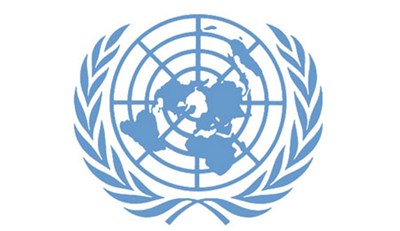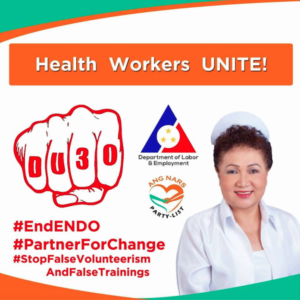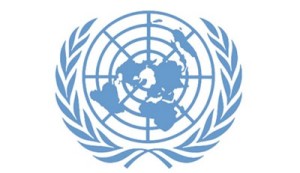My, my, how times have changed…
When I worked at the United Nations Volunteers (UNV) programme from 2001 to mid-February 2005, one of my duties was directing the Online Volunteering service, the platform that UNV had co-created with NetAid for nonprofits serving the developing world to recruit and engage online volunteers. Near the end of my time at UNV, the new communications manager would not support any of the wildly successful online volunteering program’s communications needs: she would not include information in the quarterly UNV newsletter, she would not pitch stories to the press related to online volunteers and she would not include promoting of the online volunteering platform in any of her strategies. We had a meeting for our entire departments’ staff so I could ask why, and her reply was, “I was hired to promote UNV, not the online volunteering program.” My response: “Gee, UNV is my employer, so I assume the online volunteering program was a part of UNV.” The meeting went downhill from there.
Even before she joined UNV, it was a constant struggle to get UNV staff, both at HQ and in the field, to think about online volunteers as a part of UNV’s mission, despite the full support of the then head of UNV, Sharon Capeling-Alakija:
- The head of the department responsible for recruiting onsite UN Volunteers and managing their applications successfully petitioned to create an unwritten policy that only onsite volunteers could be called “UN Volunteers”, not online volunteers recruited and engaged through the online platform, even if they were supporting UN initiatives. She also refused all of my attempts to walk her through the online volunteering platform and to potentially integrate some of its features into UNV’s overall application system (she had only VERY reluctantly agreed to the creating of an online application system for onsite UN Volunteers – she preferred postal mail and faxing).
- A survey of all UNV HQ staff found that, in the three years following the site coming under the sole management of UNV, the vast majority had never logged into the online volunteering platform. This was despite frequent internal presentations about online volunteering.
- Presentations to UNV program managers, who were responsible for overseeing the creation of UNV assignments and managing those UNVs in the field, would provide examples of what online volunteers were actually doing, yet, the response from the majority of participants would always be, “I just don’t see how those roles can be done by online volunteers.”
- In my last four weeks at UNV, the new head of UNV noted to me that the online volunteering service would be eliminated unless a funder was found, because he didn’t think it was that important – and given that he successfully eliminated the United Nations Information Technology Service (UNITeS), I was pretty sure that virtual volunteering within UNV was doomed.
And here we are, almost 20 years later, and UNV has launched a Unified Volunteering Platform and Unified Conditions of Service. This new Unified Volunteering Platform (UVP) has brought together UNV’s onsite UNV assignment recruitment and the UN’s Online Volunteering Platform (OV) – that means www.onlinevolunteering.org no longer exists as a distinct entity. Via this new unified platform, organizations can request services of both onsite and online volunteers, and candidates can apply for both onsite UN Volunteer assignments and online assignments. It is the single-entry point for all UNV partners – from candidates for onsite and online volunteering to donors, funding partners and UNV personnel and partner organizations.
I love that UNV now, at last, sees its online volunteering engagement as part of its overall volunteer engagement. I would love to know how it happened! But this change, this unified platform, comes at a big cost: UNV no longer allows any nonprofit or NGO that’s working on behalf of the developing world to recruit online volunteers via its platform. The only organizations allowed to use the platform to recruit online volunteers are “eligible partners”: UN entities (UNICEF, UNDP, UNESCO, etc.), those with accreditation with the Economic and Social Council (ECOSOC), or an organization working with a UN Country Team as an implementing partner. That means small NGOs who don’t have a formal partnership with UNV or aren’t working with a UNV in the field are now locked out of the platform for recruiting online volunteers.
The other downside: all those great lessons about how to work with online volunteers that the online volunteering service is now much harder to find, since it no longer exists on any UNV web site (I’ve done my best to salvage them here, since I wrote most of them).
But even with those costs, ultimately, it’s the right decision, because it means UNV now makes it clear that ALL of the volunteering it facilitates, including online volunteering, must be in support of the goals of communities in developing countries, and must have real impact – it must put the needs of the communities first. It further distances UN Volunteers, including online volunteers, from voluntourism or vanity volunteering.
What will happen to the domain onlinevolunteering.org? Not sure. For now, it points to UNV’s new unified platform. But UN agencies are notorious for not keeping URLs it no longer uses as its primary address (like unvolunteers.org, which now goes nowhere) or for programs that have sunsetted, no matter how popular, like all the many sites associated with International Year of Volunteers in 2001, or worldvolunteerweb.org. So if you have a virtual volunteering initiative, you should keep an eye on the onlinevolunteering.org URL for when UNV inevitably abandons it.
My other UNV-related blogs:
- Resources from my time at United Nations Volunteers
- NetAid: 20 years later
- United Nations site for people with disabilities is inaccessible
- Justifying a position as “volunteer” instead of “paid staff”
- Initial feedback on UNV plan to integrate volunteerism in development
- UNV announces Online Volunteering Award 2015
- I’m thrilled with UNV’s 2015 State of the World’s Volunteerism Report – Transforming Governance
- History & Evaluation of UNV’s Early Years

If you want to dig far deeper into the factors for success in creating assignments for online volunteers, supporting online volunteers, and keeping virtual volunteering a worthwhile endeavor for everyone involved, you will not find a more detailed guide anywhere than The Last Virtual Volunteering Guidebook. It’s available both as a traditional print publication and as a digital book. UNV’s Online Volunteering Service is referred to frequently in the book, and some of its star online volunteers are featured.

If you have benefited from this blog or other parts of my web site and would like to support the time that went into researching information, developing material, preparing articles, updating pages, etc. (I receive no funding for this work), here is how you can help.


 I’m one of the moderators of
I’m one of the moderators of 



